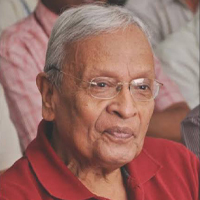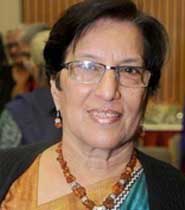Cyber knife robotic radiation treatment IN INDIA
Medical technology continues to evolve at a rapid pace, bringing hope to millions battling complex diseases like cancer. Among the most innovative solutions is the CyberKnife robotic radiation system, which has transformed how tumors are treated. This cutting-edge technology delivers precise, non-invasive radiation therapy, minimizing damage to surrounding healthy tissues and improving patient outcomes.
India has emerged as a sought-after destination for CyberKnife treatment, offering advanced facilities, experienced oncologists, and cost-effective services. In this comprehensive article, we delve into the specifics of CyberKnife therapy, its applications, benefits, procedural details, and why India is a leading hub for this groundbreaking treatment.
What Is CyberKnife Robotic Radiation Treatment?
CyberKnife is an advanced robotic radiosurgery system designed to treat both cancerous and non-cancerous tumors with exceptional precision. Unlike traditional radiation therapy, CyberKnife uses robotic arms to deliver high doses of radiation from multiple angles. This flexibility allows it to target tumors in hard-to-reach areas while sparing nearby healthy tissues.
One of its standout features is the ability to track tumors in real-time using advanced imaging. Tumors often shift during treatment due to patient movement or organ activity (such as breathing), and CyberKnife adjusts the radiation beams accordingly, ensuring pinpoint accuracy.
How Does CyberKnife Work?
The CyberKnife system employs a combination of technologies:
- Robotic Arm: Delivers radiation with sub-millimeter precision.
- Imaging System: Tracks the tumor’s position continuously during the procedure.
- Real-Time Motion Synchronization: Adjusts radiation delivery to account for tumor movement.
Unlike conventional radiation therapy, which may require 20-30 sessions, CyberKnife often completes treatment in 1-5 sessions. Each session is painless, does not require anesthesia, and typically lasts between 30 to 90 minutes.
Applications of CyberKnife Treatment
CyberKnife is versatile and effective in treating a wide range of conditions, including:
- Cancerous Tumors
- Lung Cancer: Ideal for inoperable cases or tumors near vital structures.
- Prostate Cancer: Offers a non-invasive alternative to surgery.
- Brain Tumors: Treats tumors in sensitive areas with minimal risk to cognitive functions.
- Liver and Pancreatic Cancer: Targets tumors in difficult locations while preserving surrounding tissues.
- Benign Tumors
- Acoustic Neuromas: Treats these non-cancerous growths affecting hearing and balance.
- Meningiomas: Addresses tumors on the brain’s protective linings.
- Pituitary Adenomas: Precisely targets hormone-producing tumors in the brain.
- Functional Disorders
- Trigeminal Neuralgia: Relieves chronic facial pain by targeting the nerve causing the issue.
- Arteriovenous Malformations (AVMs): Shrinks abnormal tangles of blood vessels.
When Should CyberKnife Be Considered?
CyberKnife is often the treatment of choice when traditional surgery is not viable due to:
- The tumor’s location in a sensitive or hard-to-reach area.
- Patient’s inability to undergo invasive procedures due to health risks.
- Recurrent tumors that require precise intervention.
It is also a preferred option for patients seeking a less invasive and quicker alternative to surgery.
Advantages of CyberKnife Treatment
CyberKnife offers numerous benefits that make it a superior option for treating specific conditions:
- Non-Invasiveness: The procedure requires no incisions or hospital stays, allowing patients to resume normal activities immediately.
- High Precision: Sub-millimeter accuracy ensures minimal damage to healthy tissues surrounding the tumor.
- Shorter Treatment Time: Most cases are treated in fewer sessions compared to weeks of traditional radiation therapy.
- Minimal Side Effects: Patients typically experience fewer side effects, such as fatigue or localized skin irritation.
- Outpatient Procedure: The convenience of no hospital admission significantly reduces stress for patients.
CyberKnife Treatment Procedure
Understanding the CyberKnife treatment process can help alleviate patient concerns and provide clarity on what to expect. The procedure is typically divided into three main phases: pre-procedural, treatment, and post-treatment.
- Pre-Procedural Phase
Consultation and Diagnosis
- The journey begins with a thorough consultation with an oncologist or radiation therapist. During this initial meeting, the medical team reviews the patient’s medical history, conducts a physical examination, and evaluates previous diagnostic tests. Advanced imaging techniques such as CT scans, MRI, or PET scans are employed to precisely locate and characterize the tumor.
Treatment Planning
- Based on the diagnostic imaging, a multidisciplinary team comprising oncologists, radiologists, and medical physicists collaborates to develop a customized treatment plan. This plan outlines the exact dosage of radiation, the number of treatment sessions, and the specific angles and paths the radiation beams will take to target the tumor effectively.
Simulation and Mock Sessions
- Prior to the actual treatment, simulation sessions may be conducted to ensure accurate targeting. Patients may undergo mock sessions where markers are placed on their skin to guide the radiation delivery. This step is crucial for aligning the CyberKnife system with the tumor’s location and movement patterns.
- Treatment Phase
Robotic Radiation Delivery
- On the day of treatment, patients are positioned comfortably on a treatment couch. The CyberKnife system’s robotic arm, equipped with multiple radiation beams, begins the precise delivery of high-dose radiation to the tumor. The system continuously monitors the tumor’s position, making real-time adjustments to account for any movement, ensuring consistent and accurate radiation delivery throughout the session.
Session Duration
- Each treatment session typically lasts between 30 to 90 minutes, depending on the size and location of the tumor. Patients remain awake and can communicate with the medical team throughout the procedure. The non-invasive nature of CyberKnife allows patients to remain comfortable without the need for anesthesia.
- Post-Treatment Phase
Follow-Up Appointments
- After completing the treatment sessions, regular follow-up appointments are scheduled to monitor the patient’s progress and assess the effectiveness of the therapy. These appointments may include additional imaging studies to evaluate tumor response and ensure that the treatment goals are being met.
Recovery and Rehabilitation
- One of the significant advantages of CyberKnife is the minimal recovery time required. Most patients can resume their daily activities immediately after each session, with little to no downtime. Any minor side effects, such as localized skin irritation or mild fatigue, are typically short-lived and manageable.
Cost of CyberKnife Treatment in India
India is renowned for providing high-quality CyberKnife treatment at a fraction of the cost compared to Western countries. The treatment cost varies depending on the type of tumor, the number of sessions required, and the hospital chosen.
In comparison, the same procedure can cost between $25,000 and $50,000 in countries like the USA or the UK.
| Type of Tumor | Cost in India (INR) | Cost in India (USD) |
| Brain Tumors | ₹2,50,000 – ₹5,00,000 | $3,000 – $6,000 |
| Prostate Cancer | ₹3,00,000 – ₹6,00,000 | $3,600 – $7,200 |
| Liver and Pancreatic Cancer | ₹2,50,000 – ₹6,50,000 | $3,000 – $7,800 |
What are the Factors Affecting the Cost of CyberKnife Treatment?
The cost of CyberKnife treatment can vary significantly based on several factors. Understanding these variables is crucial for patients planning their medical journey. Below are the key factors that influence the cost of CyberKnife treatment:
Type and Complexity of Tumor
- Size and Location: Tumors in hard-to-reach or sensitive areas, such as the brain or spine, may require more detailed planning and advanced imaging, increasing the cost.
- Type of Tumor: Treating aggressive or complex cancerous tumors may necessitate additional sessions and specialized expertise, contributing to higher expenses.
Number of Sessions Required: While CyberKnife typically requires fewer sessions compared to traditional radiation therapy, some conditions might still need multiple sessions, impacting the overall cost.
Pre-Treatment Diagnostics and Imaging: Advanced imaging techniques like MRI, CT, or PET scans are essential for mapping the tumor and creating a precise treatment plan. The cost of these scans can add to the total treatment expense.
Hospital and Location
- Hospital Reputation: Premium hospitals with state-of-the-art facilities and experienced specialists may charge more for their services.
- City or Region: Treatment in metropolitan areas or well-known medical hubs tends to be more expensive than in smaller cities or towns.
Expertise of the Medical Team: Oncologists and radiation therapists with extensive experience in CyberKnife procedures may command higher fees. However, their expertise often ensures better outcomes.
Additional Medical Needs: Some patients may require additional medical interventions, such as biopsies, blood tests, or anesthesia (in rare cases), which can increase the total cost.
Post-Treatment Care: Follow-up consultations, imaging studies, or any treatment for side effects could add to the overall expenses.
Technological Advancements: CyberKnife systems in hospitals equipped with the latest technology or software upgrades may result in slightly higher costs due to their superior precision and efficiency.
International Patients: For international patients, factors like visa processing, travel, accommodation, and interpreter services can also influence the overall cost of undergoing CyberKnife treatment in another country.
Insurance Coverage: Whether a patient has insurance that covers CyberKnife treatment or not plays a significant role in determining out-of-pocket expenses.
Why India for CyberKnife Treatment?
India is a leading destination for CyberKnife therapy for several reasons:
- World-Class Infrastructure: Indian hospitals are equipped with the latest technology and facilities.
- Experienced Oncologists: India has highly trained specialists with extensive experience in CyberKnife treatment.
- Affordable Costs: The treatment is significantly cheaper compared to other countries, without compromising on quality.
- Accessibility: Short waiting times and seamless processes ensure timely treatment.
Why Choose Al Afiya Medi Tour for CyberKnife Treatment in India
Selecting the right medical tourism facilitator is as crucial as choosing the right treatment center. Al Afiya Medi Tour distinguishes itself as an ideal partner for patients seeking CyberKnife treatment in India. Here’s why choosing Al Afiya Medi Tour can make a significant difference in your treatment journey:
- Personalized Treatment Planning and Coordination: Al Afiya Medi Tour offers tailored treatment planning services, ensuring that each patient’s unique medical needs and preferences are addressed. From initial consultations to final follow-ups, the team coordinates every aspect of the treatment process seamlessly.
- Partnerships with Top Hospitals in India: Al Afiya Medi Tour has established strong partnerships with some of India’s leading hospitals that offer CyberKnife treatment. These collaborations ensure that patients receive care from the best medical professionals in state-of-the-art facilities.
- Comprehensive Support for International Patients: Navigating medical procedures in a foreign country can be daunting. Al Afiya Medi Tour provides comprehensive support services, including visa assistance, travel arrangements, accommodation booking, and airport transfers, ensuring a smooth and stress-free experience.
- Cost-Effective Packages Without Compromising Quality: Understanding the financial concerns of international patients, Al Afiya Medi Tour offers competitively priced treatment packages that include all necessary services. These packages provide excellent value without sacrificing the quality of care.
- Multilingual Assistance: Effective communication is vital for successful treatment outcomes. Al Afiya Medi Tour employs multilingual staff who can assist patients in their preferred language, facilitating clear and efficient communication with medical teams.
- Transparent Pricing and No Hidden Costs: Transparency in pricing is a hallmark of Al Afiya Medi Tour. Patients receive detailed breakdowns of all costs upfront, ensuring there are no unexpected expenses during their treatment journey.
- 24/7 Customer Support: Al Afiya Medi Tour provides round-the-clock customer support to address any queries or concerns patients may have, ensuring continuous assistance throughout their stay in India.
- Experienced Medical Tourism Facilitators: The team at Al Afiya Medi Tour comprises experienced professionals who understand the nuances of medical tourism. Their expertise ensures that patients receive the best possible guidance and support at every step.
- Focus on Patient Well-Being: Al Afiya Medi Tour prioritizes the overall well-being of patients, offering additional services such as personalized diet plans, wellness programs, and relaxation therapies to enhance the treatment experience.
- Positive Patient Testimonials: Numerous satisfied patients have shared their positive experiences with Al Afiya Medi Tour, highlighting the exceptional service, seamless coordination, and excellent medical outcomes achieved through their support.
Ethical and Reliable Services: Al Afiya Medi Tour adheres to the highest ethical standards, ensuring that all services provided are reliable, trustworthy, and aligned with patients’ best interests.
Top Cyber knife robotic radiation treatment Doctors in India
The right doctor to consult for a Cyber knife robotic radiation treatment case.
Dr. A.K. Banerji
Year of experience: 50 years of experience
Dr. Himanshu Champaneri
Year of experience: 16
Senior Consultant at Marengo Asia Hospitals Formerly W Pratiksha Hospital, Gurgaon
Dr. Kapil Agarwal
Year of experience: 24
Senior Consultant and HOD at Marengo Asia Hospitals Formerly W Pratiksha Hospital, Gurgaon
Dr. Manvir Bhatia
Year of experience: 23 Years of Experience
Dr. Praveen Gupta
Year of experience: 15 Years of Experience
Dr. Rana Patir
Year of experience: 32
Consultant at Fortis Memorial Research Institute, Gurgaon
Dr. Rohan Sinha
Year of experience: 16 years of experience
Director & Senior Consultant at Jaypee Hospital
Dr. Sandeep Vaishya
Year of experience: 36
HOD and Senior Consultant at Fortis Memorial Research Institute, Gurgaon
Dr. Sanjeev Srivastava
Year of experience: 22
Senior Consultant at Artemis Hospital
Dr. Sudheer Kumar Tyagi
Year of experience: 38
Senior Consultant at Indraprastha Apollo Hospital, Delhi
Dr. Sumit Singh
Year of experience: 25
Chief and Senior Consultant at Artemis Hospital
Dr. Veena Kalra
Year of experience: 37 Years of Experience
Dr. Vikas Gupta
Year of experience: 31 years of experience
Looking For The Best Doctor & Hospital?
Fill up the form and get assured assitance within 24 hrs!
FAQs
- What is CyberKnife treatment, and how does it work?
CyberKnife is a non-invasive robotic radiation therapy that delivers highly precise radiation beams to treat tumors and lesions. It uses real-time imaging to target the tumor with sub-millimeter accuracy while sparing surrounding healthy tissues.
- Which are the best hospitals in India for CyberKnife treatment?
Some of the top hospitals for CyberKnife treatment in India include:
- Apollo Hospitals, Chennai and Delhi
- Fortis Memorial Research Institute, Gurgaon
- Tata Memorial Hospital, Mumbai
- AIIMS, New Delhi
- Medanta – The Medicity, Gurgaon
- Who are the best doctors for CyberKnife treatment in India?
Renowned oncologists and radiation specialists include:
- Dr. Dinesh Pendharkar, Medical Oncologist, Delhi
- Dr. Sandeep Vaishya, Neurosurgeon, Gurgaon
- Dr. Rakesh Jalali, Radiation Oncologist, Mumbai
- Dr. Subhash Chandra, Oncologist, Bangalore
- What types of tumors can be treated with CyberKnife?
CyberKnife can treat various tumors, including:
- Brain tumors
- Spine tumors
- Lung cancer
- Liver cancer
- Prostate cancer
- Pancreatic cancer
- Benign conditions like trigeminal neuralgia
- Is CyberKnife treatment painful?
No, CyberKnife treatment is completely non-invasive and pain-free. Patients can remain awake and relaxed during the procedure.
- How long does a CyberKnife treatment session last?
A single session typically lasts 30-90 minutes, depending on the size and complexity of the tumor.
- How many sessions are required for CyberKnife treatment?
Most patients require 1-5 sessions to complete their treatment. The exact number depends on the type and location of the tumor.
- What is the recovery time after CyberKnife treatment?
There is minimal downtime after CyberKnife treatment. Patients can usually resume their normal activities within 24-48 hours.
- Is CyberKnife treatment safe?
Yes, CyberKnife is a safe and FDA-approved treatment. Its high precision reduces the risk of complications and minimizes exposure to surrounding healthy tissues.
- How much does CyberKnife treatment cost in India?
The cost of CyberKnife treatment in India typically ranges from ₹2,50,000 to ₹6,00,000 (approximately USD 3,000 to USD 7,500), depending on factors like the hospital, doctor, and complexity of the tumor.
- Why is India a preferred destination for CyberKnife treatment?
India offers world-class medical care at a fraction of the cost compared to Western countries. The availability of advanced technology, experienced specialists, and the support of companies like Al Afiya Medi Tour makes India a top choice for international patients seeking CyberKnife treatment.
Get FREE Evaluation
Treatment plan and quote within within 24 hrs!
Let us help you
Get your personalized Estimate Now
Top Doctors & Surgeons in India
Best Hospitals in India
Best Treatments in India
Indian Medical Visa From
Copyright © 2025 Al Afiya Medi Tour | All Rights Reserved.






































